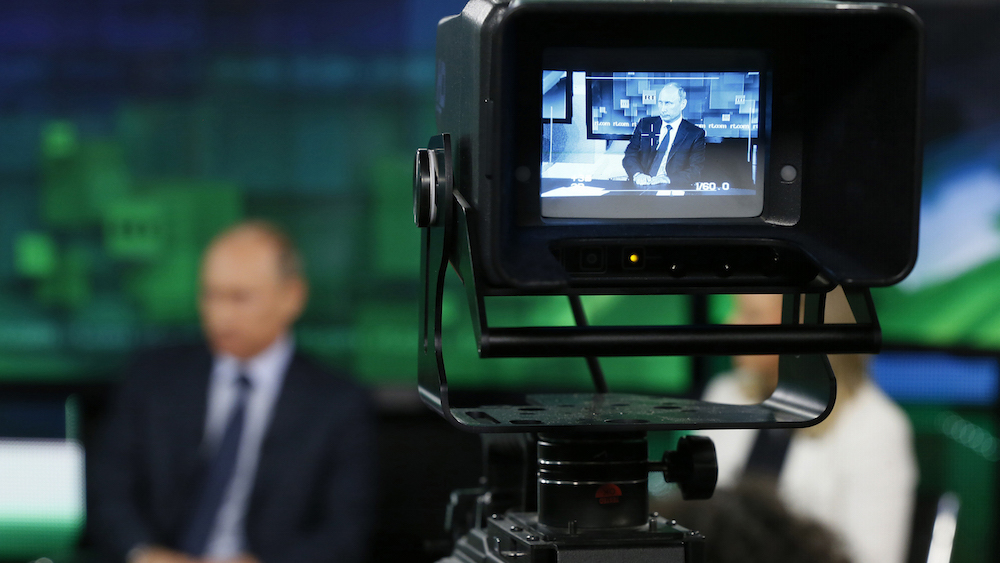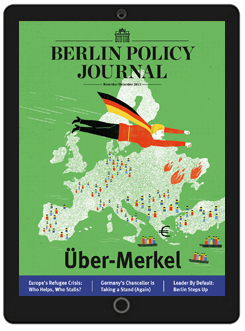The war in Ukraine marked an escalation in Russian propaganda efforts, many targeted at EU member states. The EU needs to develop the capacity to respond to this new soft power offensive both at home and abroad.
The Russian covert military operation in Ukraine blurred the lines between war and peace and challenged the conventional interpretation of warfare. But Russia’s use of propaganda poses an equally significant challenge: Western democracies are in danger of losing the propaganda wars waged by Russia and its media and are under pressure to fight back. The European Union’s response to attempts to divide European societies must lie in strengthening the independence and quality of media and in enhancing good governance.Hybrid Warfare, Not Full-Scale War
The central element of Russia’s current strategy is an attempt to force the United States and the European Union onto Russia’s playing field. Through a combination of military, political, and economic tools – including cyberattacks and enhanced intelligence measures – Russia is pursuing an asymmetrical strategy that antagonizes the West without provoking a full-scale confrontation with NATO. As Russian Chief of the General Staff Valery Gerasimov has argued, “The role of non-military means of achieving political and strategic goals has grown, and, in many cases, they have exceeded the power of weapons in their effectiveness.”
The Russian approach originates in a predominantly defensive mind-set that interprets self-determination of states at Russia’s periphery, as well as Western support of civil society movements in those states, as part of an “encroachment strategy”. Moscow translates this mind-set into aggressive efforts to undermine state sovereignty, as well as attempts to sow disagreement among Western audiences. The dissemination of falsified information is a central part of Russia’s hybrid warfare strategy. In fact, Dmitry Kiselyov, the head of Russia’s government-owned international news agency Rossiya Segodnya, has called information wars “the main type of warfare” of the 21st century.
Russia’s dissemination of state-controlled information has resulted in a highly successful attempt to frame its national narrative with little interference from foreign media channels. Propaganda inside Russia works in two ways: the Kremlin creates a story in which Russia appears “encircled” by the West, while journalists cooperate with the Kremlin to advance their careers. Today, the legitimacy of the ruling elite derives from its anti-Westernism, and the majority of Russians believe that Moscow’s national media coverage of events abroad – particularly in Ukraine – is correct.
At the same time, the Kremlin has pursued an international strategy to disseminate its viewpoints throughout Europe. In 2014 Russia consolidated media outlets into one state-owned conglomerate, the aforementioned Rossiya Segodnya, to enhance the effectiveness of its international broadcasting, upgrading its status to a “strategic enterprise”. Russia also significantly invested in its broadcast program abroad, in particular in its television network Russia Today (RT), for which Moscow spent $2 billion between 2005 and 2013. Moreover, state-financed media outlets such as Sputnik News which operate on air and online publish multilingual news stories in Western countries. Various US and European newspapers have in turn spread the stories of both platforms, thereby indirectly helping to distribute content produced by Russian journalists closely linked to the Russian government. Social media then serves as a multiplier of Russian propaganda. …
Read the complete article in the Berlin Policy Journal App – November/December 2015 issue.








